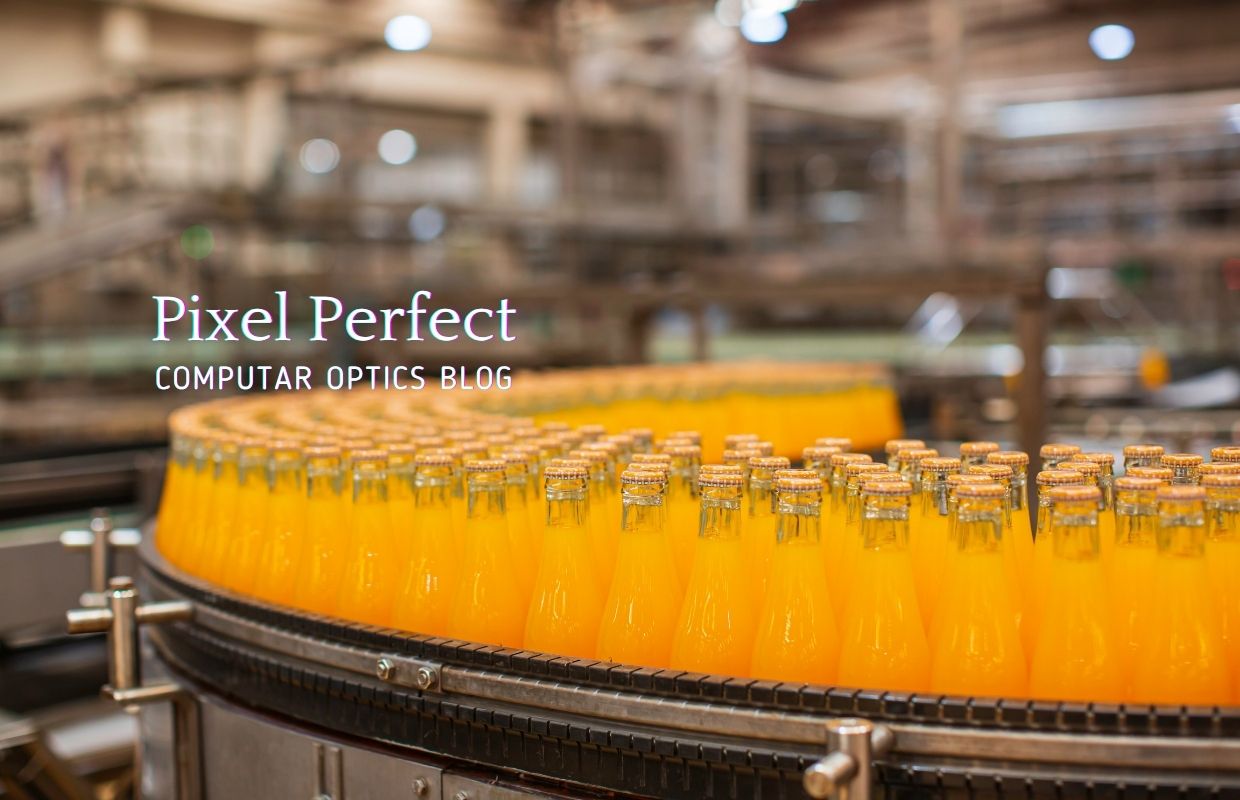Machine Vision & Robotics
•
September 2023
April 2025
The Crucial Role of Multi-Band Filters in Food and Beverage Sorting
In the fast-paced world of food and beverage processing, ensuring product quality and safety is crucial. Manufacturers increasingly turn to advanced technologies to maintain high standards as consumer expectations rise. One such technology that plays a vital role in this industry is multi-band filtering. This article examines how multi-band filters improve the sorting process, enhancing quality control and operational efficiency.
Understanding Multi-Band Filters
Multi-band filters are sophisticated devices that can differentiate between various frequencies and wavelengths of signals. Filters are used in multiple applications, including electronics and telecommunications, but their effectiveness in sorting food and beverages is especially impressive. They are designed to respond selectively to specific parameters like size, weight, and color, making them adaptable for various sorting tasks.
Importance in Food and Beverage Sorting
1. Enhancing Quality Control
Quality control is a critical aspect of food and beverage processing. Multi-band filters enable manufacturers to sort products based on specific characteristics, such as freshness and ripeness. For instance, when sorting fruits, the user can calibrate to detect subtle color variations that indicate ripeness levels. By removing underripe or overripe products, manufacturers can ensure a higher quality offering to consumers.
2. Improving Safety Standards
Food safety is a top priority in the industry. Multi-band filters can help identify contaminants or foreign objects in food and beverages. These filters can separate affected products from the main batch by using sensors that detect specific wavelengths of light associated with contaminants. This process minimizes the risk of contamination and helps companies comply with safety regulations.
3. Increasing Operational Efficiency
The integration of multi-band filters into sorting systems can significantly enhance operational efficiency. Traditional sorting methods often rely on manual labor, which can be time-consuming and prone to human error. Multi-band filters automate the sorting process, allowing faster and more accurate separations. This automation reduces costs and enables higher throughput rates, which is particularly important in large-scale production environments.
4. Application in Beverage Sorting
In the beverage industry, multi-band filters are used to ensure product purity and quality. For example, during the production of juices or wines, these filters can assess color and turbidity levels, helping to identify unwanted sediments or clarify the final product. This capability ensures that only the best products reach consumers, enhancing brand reputation and customer satisfaction.
Technological Advancements
The ongoing advancements in AI, sensor technology, and data processing have further enhanced the capabilities of multi-band filters. Modern systems can analyze vast amounts of data in real-time, allowing for quick decisions during the sorting process. Machine learning algorithms can also be incorporated, enabling the system to improve its sorting criteria based on historical data. This adaptability ensures that the sorting systems can evolve as product standards change.
Integrating vision systems with multi-band filters in food sorting is crucial for enhancing food production quality control, accuracy, and efficiency. Using Computar lenses with multi-band filters in food and beverage sorting systems provides a powerful solution for ensuring product quality and safety. The high resolution and adaptability of Computar lenses, combined with the selective functionality of multi-band filters, enable precise imaging and analysis of food and beverage products. This combination enhances quality control processes, automates sorting operations, and ultimately improves operational efficiency in food processing environments
Conclusion
Multi-band filters are transforming food and beverage sorting by improving quality control, enhancing safety standards, and increasing operational efficiency. As technology continues to advance, the role of these filters will likely expand, leading to more sophisticated sorting solutions that meet the industry's evolving demands. Manufacturers can ensure product excellence while fostering customer trust and satisfaction by investing in multi-band filtering technology.
To learn more join us for an insightful webinar "Enhanced Food and Beverage Sorting with Multi-Band Filters" on April 7, 2025.
Sources:
- Applications of Optical Filters in the Food Industry - IEEE Access
- Spectroscopic Techniques in Food Industry - Journal of Food Science and Technology
- Food Quality Assurance: Principles and Practices - Amazon
- Food Process Engineering and Technology - ScienceDirect
- Food and Beverage Quality Assurance Market Report 2023 - Research and Markets
- Food and Beverage Manufacturing Industry Overview - IBISWorld




